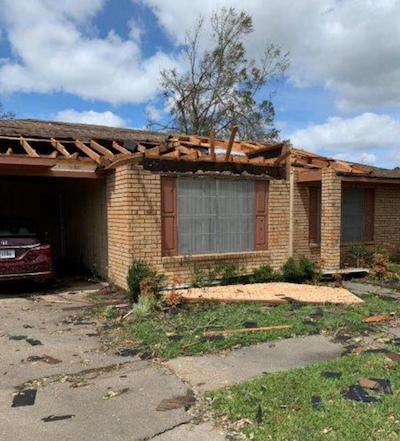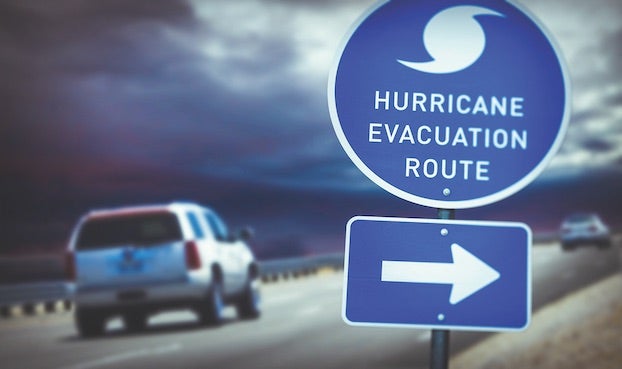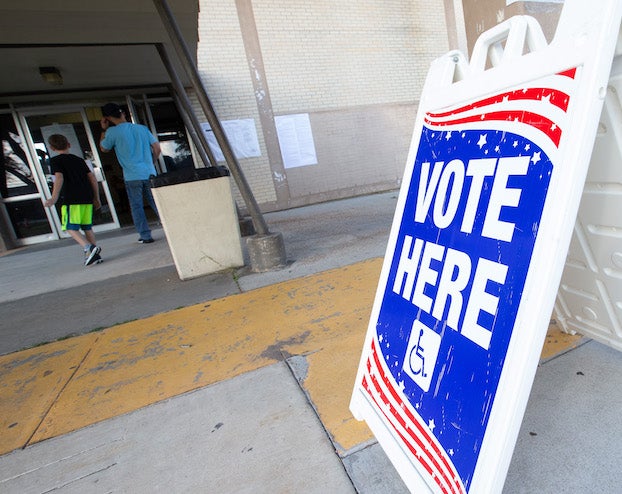Jim Beam column:Insurance reform hot topic
Published 7:18 am Sunday, March 27, 2022

- Louisiana legislators are trying to give homeowners like this one some new laws fixing insurance problems they experienced after Hurricanes Laura and Delta in Southwest Louisiana.
Legislation is making its way through the state House and Senate that is aimed at solving problems policyholders have had with their insurance companies after hurricanes and other catastrophes. Communication has been a major problem for policyholders following the hurricanes of 2020 and 2021.
The bills deal with too many insurance adjusters (the No. 1 complaint of policyholders), mediation aimed at speeding up claims settlements, helping policyholders understand their rights and creation of a board to investigate property insurance fraud.
Sen. Kirk Talbot, R-River Ridge, and chairman of the Senate Insurance Committee, is sponsoring Senate Bill 198. It would require insurers to send written progress reports to policyholders once a third adjuster is assigned to the claim within a six-month period.
Some members of Talbot’s committee had a problem with giving companies six months because with each new adjuster, the claims process essentially starts over. However, once a third adjuster is assigned, the bill requires the insurer to give the policyholder a detailed status report.
That report would explain actions that have been taken, the dollar amount of coverage for losses and a list of all items in dispute. The insurer would also have to provide the insured a primary contact and two or more direct means of communicating with that person.
Talbot is also sponsor of SB 163 that requires the state insurance commissioner to provide policyholders with a catastrophe claim process disclosure form. It would explain how the claim process works, how supplemental claims work, the procedure for a policyholder to property document an insurance claim and let them know they can file a complaint with the state Department of Insurance.
Sen. Jeremy Stine, R-Lake Charles, has a half-dozen insurance bills and one on mediation made it through Talbot’s committee. Stine noted during debate on Talbot’s adjuster bill that a friend is now dealing with his 13th adjuster.
SB 212 by Stine would establish a statewide Hurricane Mediation Program. It provides that every insured may request mediation for a disputed residential property claim for property damage up to $50,000 if the governor declares a state of emergency.
Sen. Gary Smith, D-Norco, said he would like to see a higher number than $50,000. He said some policyholders have had to deal with claims as high as $350,000.
Stine said he had no problem raising the figure, but that will be done with an amendment during Senate debate. Senators on the committee seemed to prefer claims as high as $150,000.
The legislation lays out 10 requirements with which a mediation firm must comply. There are 15 things with which the insurer and insured must also comply. Nothing in the proposed law applies to commercial insurance policies, private passenger motor vehicle insurance, or disputes relating to liability coverages in policies of property insurance.
Other measures by Stine deal with increased penalties for not paying claims in a timely manner, authorize the insurance commissioner to order penalties for persons engaging in unfair competition methods, establish an adjuster database, and set up more transparency involving residential or commercial property damaged by a named storm or windstorm.
Rep. Ed Larvadain, D-Alexandria, is sponsor of House Bill 692 that creates a 21-member board to investigate instances of fraud in property insurance. Insurance Commissioner Jim Donelon spoke against the bill, saying he already pays 12 employees to do fraud investigations.
Eric Holl, executive director of Real Reform Louisiana, said the goal of the bill is to create something that is full-time and focused on fraud committed after a storm. He said thousands of complaints have been filed with the insurance commissioner’s office.
Larvadain said, “He (Donelon) couldn’t say exactly one example of him dealing with fraud with homeowners. He gave the perfect example of why you need it (the fraud board).
Donelon did give two recent examples in which the department levied penalties against an insurance agent and policyholder. However, he didn’t know how many fraud complaints had been referred for criminal prosecution.
These and other bills are just completing the first stage of their legislative process —hearings and approval by House and Senate insurance committees. If approved by one chamber, they move to the other chamber for debate and final action.
Home and commercial property owners have made it clear they want substantial changes in the way their property claims are handled. There is an indication insurance companies will agree to some of those changes. We can only hope property owners won’t ever again face the unbelievable insurance problems they have experienced over the last two years.





